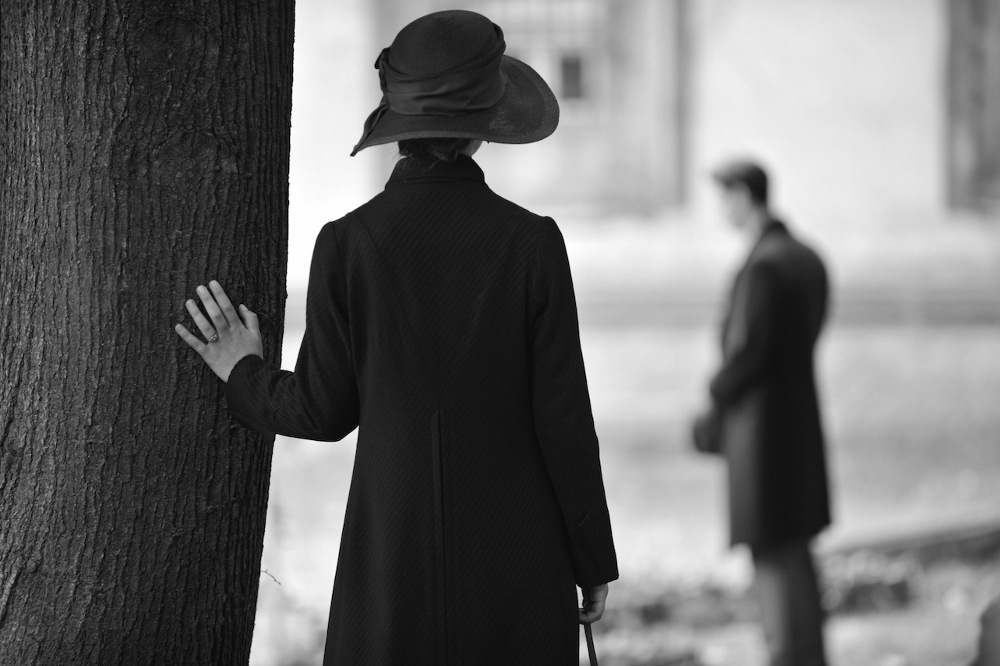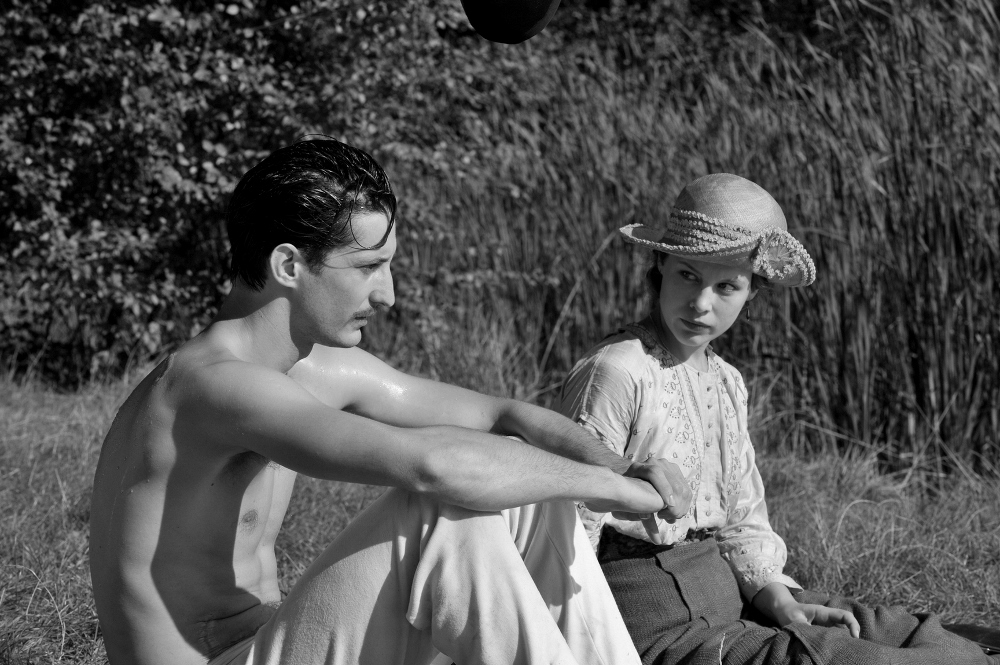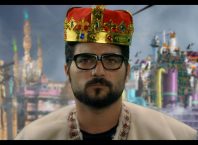
Emotionally stirring, deeply aesthetic and sensual, François Ozon’s Frantz is a thought-provoking film that explores issues of war, loss, memory, fidelity, and the possibility of healing and renewal. Set in the aftermath of World War I, the opening image fades from color to black and white, taking the viewer back in time to the village of Quedlinberg, Germany in 1919. The monochromatic palette reflects the somber mood and sense of loss that permeates the lives of Dr. Hoffmeister and his wife Magda (Ernst Stötzner and Marie Gruber), who lost their only son, Frantz, in the war. Anna (Paula Beer) remains faithful to the memory of her dead fiancée, living with his parents and making a daily pilgrimage to his grave. Into their lives comes an enigmatic stranger, a Frenchman, Adrien Rivoire (Pierre Niney), whose advent will have a profound impact on them all. Inspired by Ernst Lubitsch’s Broken Lullaby (1932), the focus here shifts so that the big reveal (the climax of the older film) takes place in mid-narrative, followed by the second part with its dramatic turns, contributing to a more suspenseful, ambivalent, and subtle feel.
While the central theme is a reflection on the consequences of war, it is also the narrative of a woman coming into her own, enhanced by Paula Beer’s profoundly moving performance as Anna. It is Anna one sees first, a young, beautiful woman, suspended between life and death. She walks through the village center, buying flowers at a stall, pausing before a shop window, looking at a lovely dress, as might any young woman. Yet the flowers are destined for her beloved’s grave. A year has passed, and the impact of the war is still keenly felt, yet the first stirrings of life in peacetime, with its growth and possibilities – as implied by the presence of a new dress in the shop window – are making an appearance. Without family of her own, Anna now lives with her dead fiancée’s parents, who love her like a daughter. They would encourage her to move on with her life, yet she hasn’t the heart. Unable to focus, she has abandoned her studies, and cannot contemplate the advances of new suitors. Her life is bound by a simple routine: tending to the grave of Frantz, her dead fiancée.
A stranger comes to the village, Adrien Rivoire, a Frenchman who claims to have known Frantz. Attempting to contact the family, he is initially rejected by Dr. Hoffmeister, who upon noting his nationality, will not even hear him out, saying: “Every Frenchman is my son’s murderer.” Yet after Anna reveals that she has seen Adrien putting flowers on Frantz’s grave, Dr. Hoffmeister relents, and they invite the stranger into their home. A bond develops between Adrien and the bereaved trio, founded on their mutual devotion to the memory of Frantz. Adrien tells them that Frantz was his friend, the two having met in Paris, and eager to cling to any memento, he is encouraged to talk about their relationship. As Adrien recounts walking through the Louvre with Frantz, looking at paintings by Manet, the images on screen are suffused with color, evoking an image life as it once was before the war, life as it is meant to be lived, in contrast to the monochromatic existence of Anna and the Hoffmeisters.
Yet there are questions, and secrets. Anna and the Hoffmeister luxuriate in Adrien’s tales of Frantz in Paris, yet Anna wonders why her fiancée never mentioned his friendship with the Frenchman. The idyllic images of the friendship provide a contrast to the response Adrien’s presence provokes in the village. Although he is welcomed by the Hoffmeister’s as a friend of their son’s, others view only solely as a Frenchman, their enemy.

Anna blossoms in the company of Adrien, he is her living connection to Frantz. Niney imbues Adrien with an appealing sensitivity and sense of play. His fidelity to Frantz’s memory allows Anna to emerge from her self-imposed confinement, without feeling that she is betraying her fiancée. Yet when the secrets are revealed, she is faced with heartbreak and a painful dilemma. Beer’s performance is mesmerizing, and in Anna, Ozon depicts the story of a woman coming into her own, coming to know herself and others without illusions, and making courageous choices.
Ozon skillfully conveys the post-war atmosphere of suspicion and aggressive nationalism, as well as the desire to return to the calm and comforts of peacetime. In one of the film’s powerful moments, Dr. Hoffmeister addresses a meeting of hyper-nationalistic men at the pub, saying that the French do not bear the sole responsibility for the loss of lives: although the French soldiers fired the shots, it was their German fathers who sent their sons off to war. A visually compelling and deeply moving film, Frantz leaves the viewer with much to contemplate.
Frantz
Director: François Ozon; Screenplay: Ozon, with Philippe Piazzo, inspired by the film Broken Lullaby by Ernst Lubitsch; Cinematography: Pascal Marti; Editor: Laure Gardette; Cast: Pierre Niney, Paula Beer, Ernst Stötzner, Marie Gruber, Johann Von Bülow, Anton von Lucke, Cyrielle Clair, Alice de Lencquesaing.





